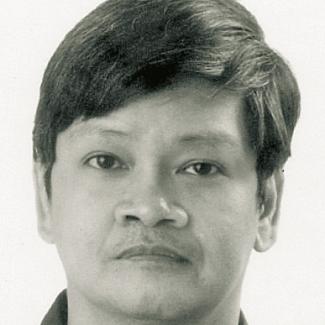Authoritarian attitudes
Chains coming?
 Favila/AP Photo/picture-alliance
Duterte campaigning in Manila in early May.
Favila/AP Photo/picture-alliance
Duterte campaigning in Manila in early May.
“We Filipinos need disciplining,” a taxi driver told me a few days after Rodrigo Duterte won the presidential elections. The man the electorate chose to administer the discipline is heavy-handed indeed. During his campaign, Duterte often addressed unseen criminals with the words “I will kill you”, vowing to fill the waters of Manila Bay with thousands of corpses.
Decrying the country as riddled with crime and corruption, he used the slogan “change is coming”, which some followers with uncertain English skills phonetically spelled as “chains is coming”. Perhaps they were prescient.
The new president has promised a lot, including to:
- restore the death penalty and hold public hangings,
- impose a nationwide curfew on minors,
- have speeding motorists stripped naked,
- limit families to three children and
- ban firecrackers.
He also plans to ban public smoking, drinking and late-night karaoke sessions. He has pledged to improve internet speed and compels taxi drivers to give exact change.
The 71-year old populist, former mayor of Davao who was sworn in on 30 June, will be a new kind of president:
- the first to come from the conflict-torn southern island of Mindanao,
- the first to invite hardline communists into his cabinet,
- the first to express belligerence towards the Catholic Church (he cursed the Pope and said the Church was full of hypocrites) and
- the first to be stridently anti-American.
As Davao mayor, Duterte was linked to the city’s death squads. These assassins murdered more than a thousand suspected criminals, including women and children, according to human-rights groups. Duterte, who started as a public prosecutor, himself has calmly admitted to killing at least three people.
Philippine elections are hardly genteel tea parties, but Duterte’s campaign was marked by vulgarity and oafishness. He entertained cheering audiences with bloodcurdling promises, boorish jokes and insults. He called a rival candidate a queer and railed against the USA, Singapore and the Vatican. His speeches were laced with obscenities. His favourite imprecation is a Spanish-Tagalog expression that literally means “whore mother” but is just as rude as the “f-bomb” in English.
He pretends to be a simple persona and said he would abolish algebra, calculus and trigonometry as school subjects. He admitted to being a womaniser, joked about raping a long-dead Australian missionary woman and warned the public not to vote for him because “it will be bloody”. When, in one presidential debate, he was asked for his economic programme, he cracked crude jokes instead.
He behaved like no other candidate, and the response was excitement and enthusiasm. His supporters’ devotion bordered on the religious. Frantic fans struggled to grab the towels he tossed into admiring crowds after wiping his face.
Voters lapped it all up, giving the avowed strongman a winning margin of 6 million votes over his nearest rival, the lacklustre candidate of the outgoing administration. Now that Duterte has won, he claims his over-the-top remarks were simply a campaign trick. His critics are doubtful and wary. They remember his constant promise to kill and his actual record. They remember that his campaign was marked by a crude, ugly and vicious social media component. On Facebook, which Filipinos love, Duterte supporters bullied critics. There is a rumour that people were paid for posting such messages.
In the meantime, Duterte has announced some persons who will serve in his cabinet. They are mostly traditional politicians. Some worked for former President Gloria Arroyo who had a reputation for corruption. Where is the change?
Although Duterte seems to stand for the poor, exit polls suggest most of his votes came from the rich and the middle class. The implicit deal seems to be that better-off citizens will not be expected to pitch in. They can sit back and enjoy the benefits of a death-dealing big daddy administration. Given that Duterte’s avowed intention is to change the constitution and the country’s form of government, critics feel the populist is set to become a dictator.
Alan C. Robles is a freelance journalist based in Manila.
editor@hotmanila.ph
